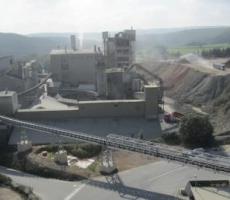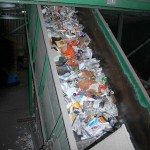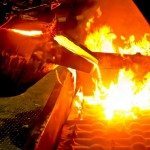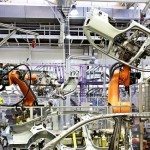Portlandzementwerk Wotan H. Schneider from Üxheim-Ahütte in the Volcanic Eifel has acquired a pipe conveyor manufactured by Beumer Group to transport clinker to its cement mill. The 200-metre-long conveying system is customized to fit into the local environment. Since the system is completely enclosed, no material can fall on the road or passing vehicles. Additionally, absolutely no dust is released into the air, which greatly benefits the environment. Furthermore, the conveyor is economical in operation, energy-efficient and maintenance-friendly.
About 380 million years ago, huge limestone reserves accumulated in the lime dell of Hillesheim in the Volcanic Eifel region of Germany. Numerous dolomite formations and several basalt and lava cones demonstrate the geological diversity of the area. At the heart of the region lies the small parish of Üxheim-Ahütte. Portlandzementwerk Wotan H. Schneider KG, informally known as Wotan Zement, has had its plant on the outskirts of the village with 180 inhabitants since 1923. The family-owned enterprise has 70 employees and produces nine cement types. According to technical director Gerd Morenhoven, these include Portland cement, Portland limestone cement, Portland pozzolana cement, blast-furnace cement, and Portland slag cement. These are bagged or filled into silo trucks and transported to construction sites, ready-mix plants, concrete component manufacturers, and building material traders.
The enterprise mines the necessary raw materials (limestone and marl) in the Üxheim, Nohn, Berndorf, and Kerpen quarries that all lie closely together in the lime dell of Hillesheim. For the manufacturing of cement clinker, limestone and marl are crushed and homogenized with additional raw materials. In raw mills, the materials are ground to the necessary grain size and dried. The resulting raw meal is then homogenized and temporarily stored in large silos. To obtain cement clinker, a coarse intermediate product, the raw meal is first transported into the cyclone preheater. There it is preheated and deacidified at temperatures of over 950°C. The material then moves into the rotary kiln where it is burned at temperatures of around 1450°C.
Read more: Pipe Conveyor Offers Maximum Environmental Protection








